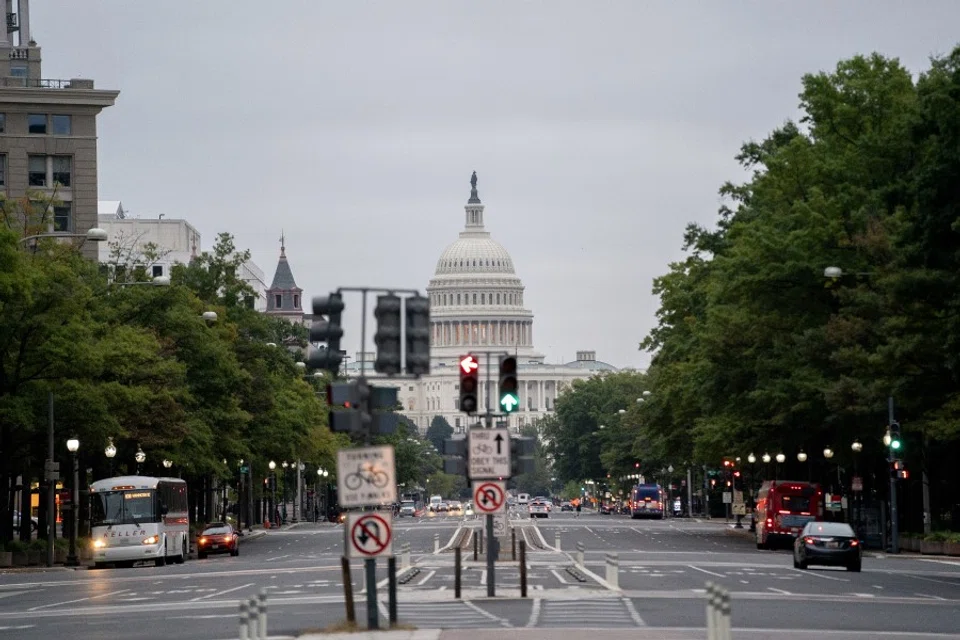Why credit rating firms stay silent on the US's recurring sovereign debt woes
So far, Fitch is the only one of the "big three" credit rating agencies to release a statement raising the possibility of a review of the US sovereignty rating with negative implications. Financial commentator Tan Haojun says that the three agencies are giving the US a lot of leeway that would probably not be given to other countries, when they should be impartial and fair in giving a rating.

On 1 October, international credit rating agency Fitch Ratings Inc. released a statement saying that reaching the US Treasury's X-date without the debt limit having been raised is the principal tail risk to the US sovereign's willingness and capacity to pay, which would likely undermine the US's current AAA status.*
While Fitch's statement was carefully worded in order not to negatively impact the US government and market, and to keep itself out of trouble, so far it is the only one of the "big three" credit rating agencies with a sense of impartiality and fairness that has dared to speak up and say a small "no" to US sovereign credit, unlike the other two agencies that have so far stayed silent and unresponsive.
Holding back because it is the US
If the US's sovereign credit problems happened to any other country, the big three would have given their rating long before now, and each would make it sound worse than the next, and give a worse rating than the next. Even if the country in question could provide strong counter-evidence, they would stick to their rating and impose their will on others. But when it comes to the US, the big three are weak - even if they express views, they are circumspect and dare not step into the minefield.
In particular, why are they always slow and unresponsive when it comes to ratings of US sovereign credit?

Such a rating is clearly unfair and goes against the impartial image of rating agencies. Shouldn't international rating agencies prioritise fairness and impartiality in their ratings, and give an objective, impartial and fair assessment of different countries, companies, sectors and industries, and not have multiple standards and criteria in forcing ideologies and various countries' political intentions in their ratings? If not, why recognise and accept such ratings?
We have no reason to interfere with the big three agencies - interfering is in itself unfair. The big three are criticised precisely because they are often subject to interference by the US government and are often subject to its will. However, there should be public debate and discussion about their rating process, assessment criteria and methods.

Lack of credibility if exceptions allowed
In particular, why are they always slow and unresponsive when it comes to ratings of US sovereign credit? If so, they should not be pointing fingers at other countries or rating other countries' companies, banks and bonds, as they would be lacking in credibility.
Notably, in recent years, especially since this year, the big three have released ratings of several China companies, especially property developers, and their ratings generally tend to be negative, which has to some extent affected residential sales and returns for these companies.
For the US, whether or not Congress agrees to raise the debt limit, its sovereign credit will be hit hard.

Not that the big three cannot rate China companies or give them negative ratings. But they should not have coloured perceptions and just "go after errant officials without going after the king" - rating companies from China and other countries however they like while remaining unmoved by the more severe problems with US sovereign credit, and not rate the US government's behaviour in oppressing companies from other countries. If so, the big three would not be welcome to interfere in the credit ratings of other countries and companies.
Being fair and impartial, open and transparent, objective and true, and giving equal treatment to all is the principle that rating agencies have to abide by, and the standard they have to hold to. In particular, equal treatment for all means that ratings would lose their meaning, value and credibility once they display biases. Clearly, the inaction of the big three in US sovereign credit ratings is a loss of impartiality, and a lack of the equality that should be demonstrated in ratings.
Reality bites
For the US, whether or not Congress agrees to raise the debt limit, its sovereign credit will be hit hard. Not raising it means the US government faces default, where it becomes a country without credit - in all senses. On the other hand, raising it is just stretching out the default period and delaying the risk of default, because according to the US government's objectives and thinking, sovereign credit default is a matter of time, and defaulting is a given. So, the big three should not stay silent, but should give US sovereign credit an objective rating.
From former US President Donald Trump ignoring growing debt and even piling on debt, to current US President Joe Biden having to raise the debt limit and using new debt to answer old debts to avoid losing credibility through sovereign credit default, the only means that is holding up the powerful US is its military. Without military strength, the US's international status would be greatly diminished. But the big three do not see all this, and are not giving it any attention.

Of course, it is more likely that they are intentionally turning a blind eye. In fact, they are aware, but just do not want to touch such a rating and offend the US government, for fear they will get into trouble.
But if so, what value would ratings have? Even if Fitch did touch on the US government, that was all it was: a touch. When it comes to the actual rating, even if the US Congress doesn't pass the raising of the debt limit, they would not bring down the rating but only prattle on about it. The big three have no say when it comes to US sovereign credit, without which they have no strong credibility.
*US Treasury secretary Janet Yellen has designated 18 October as the X-date when her department would run out of "extraordinary measures" it can take to keep meeting the government's obligations without issuing more debt. The US Senate approved legislation on 7 October to temporarily raise the federal government's US$28.4 trillion debt limit. The Senate-passed bill now goes to the House of Representatives, where it will be voted on on 12 October, before it can be sent on to President Joe Biden to be signed into law.





![[Photos] Fact versus fiction: The portrayal of WWII anti-Japanese martyrs in Taiwan](https://cassette.sphdigital.com.sg/image/thinkchina/3494f8bd481870f7c65b881fd21a3fd733f573f23232376e39c532a2c7593cbc)